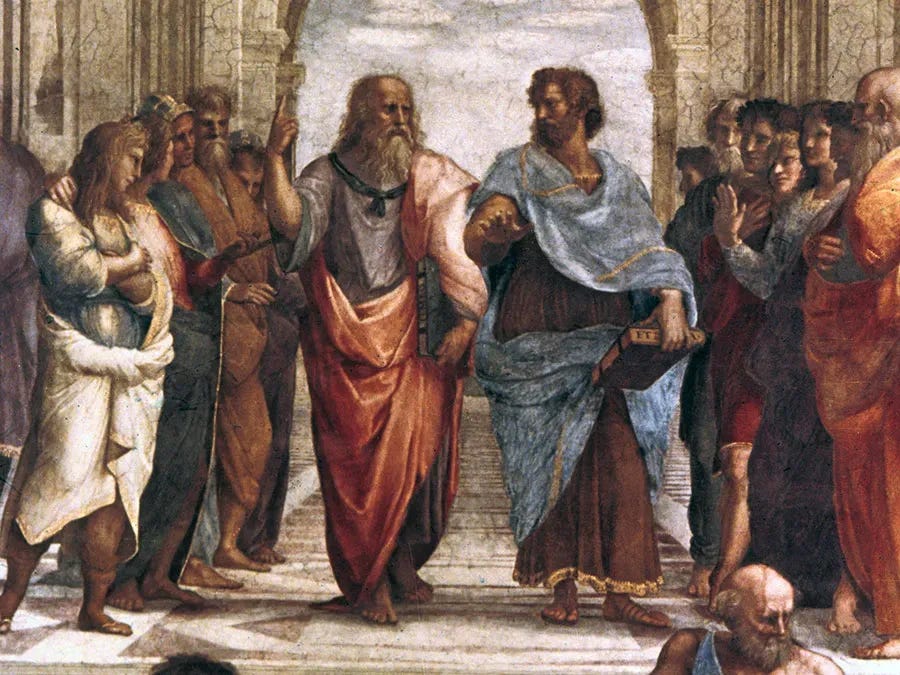While intellectuals, such as Plato and Aristotle, in the classical philosophy and democracy camp did not take into account all the intricacies of democracy and how it affects different people, their works and others are still crucial to understanding the history of democratic theory.
The big picture: Classical philosophy and democracy is essentially the origins of democracy (which comes from the Greek words demos and kratos, meaning the people and to rule – respectively).
Classical philosophy and democracy is also concerned with what it means to shift the power to the people (in this case, ordinary non elite males).
The major players: There are a few different people, mostly philosophers, that this branch of democratic theory comes from. In a similar vein, there are also actors who led the charge with democracy.
The Philosophers:
Plato - Plato had complex feelings regarding democracy, with some noting that he was as fascinated with it as he was disgusted. Plato believed that democracy needed restraints; democracy needed preventative measures to ensure that uneducated masses were not swayed by smooth talkers who were obsessed with power, rather than the betterment of society.
Aristotle: One of Plato’s students, Aristotle was not in complete agreement with Plato’s takes on democracy. In fact, taking into account Plato’s emphasis on restraints, it can be argued that Aristotle was finding ways to solve this issue with his suggestion to have the middle class control the constitution.
Thucydides: An Athenian, Thucydides had complex feelings on democracy and could see both the positives and the negatives. In The Peloponnesian War, Thucydides discusses how Athens fell into disarray following a plague that ravaged the city and killed Pericles. The effects of the plague, however, went far beyond the deaths of many Athenians and had a profound effect on Athenian democracy, with Cleon being representative of Plato’s concerns.
The States:
Athens: Athens is considered the birthplace of democracy and, though it had its own issues, is still an important figure in the democratic mythos. Perhaps it is over idealized by people but, without it, who knows where modern democracy would be.
Ionia: Overshadowed by Athens, some believe Ionia should be another powerful example of “egalitarian democratic practice” with its lack of emphasis on classes.
The Statesmen:
Pericles: Pericles is somewhat of a mythological figure, in regards to democracy, and there are some conflicting reports centered around him. Nonetheless, the quote, “[Athens] favors the many instead of the few; this is why it is called a democracy,” is attributed to Pericles and reflects the ideals of democracy that many still believe in today.
Cleon: As noted previously, Cleon is particularly troubling to democracy. Rising to power following Pericles, he is regarded as a demagogue that stained Athenian democracy and reflects the fragility of democratic rule.
Why do we care: To be sure, philosophers at this time had issues with democracy and democracy at this time was not truly representative of all the people present (democracy, at this time, was typically reserved for male citizens). Still, it is important to consider the writings and practices present at this time because a) some of the issues Plato and other philosophers wrote about are still present in modern democracy and b) is the origin of modern democratic political thought. While flaws are present in the arguments and practices during this time period, their contributions should not be ignored.


